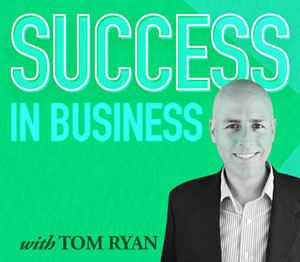 There is nothing more rewarding than starting your business. At the same time, becoming an entrepreneur takes a big leap of faith. It’s a tough job, and it’s not for everyone. Some people just aren’t cut out to be entrepreneurs, and that’s perfectly OK.
There is nothing more rewarding than starting your business. At the same time, becoming an entrepreneur takes a big leap of faith. It’s a tough job, and it’s not for everyone. Some people just aren’t cut out to be entrepreneurs, and that’s perfectly OK.
How do you know if you have the kind of personality, drive and perspective that makes for a great entrepreneur? There’s no one answer to that question. Entrepreneurs come from all walks of life, and from every background imaginable. The only reliable way to know if you have what it takes to successfully start and sustain your own business is to ask yourself some tough questions, and to be honest and real with yourself about the answers. Entrepreneurship is an experience you need to go into with your eyes open.
With that in mind, here are four hard-edged questions to get you thinking about whether or not you have the traits that make for a good entrepreneur.
1. Do you believe in the “Owning Your Own Business” fallacy?
People who are considering taking the leap into becoming an entrepreneur often share the same misconceptions about the job. They say: “I want to start my own business so that I can set my own schedule, have all sorts of flexibility, make money for myself instead of other people, and be my own boss.”
To some extent, all of those things are true, but they come with some significant caveats. The reality is that owning your own business means having the toughest boss there is: The business itself. Everything from when you work to what you make will be determined by that slavedriver of a boss, and you’re always on the clock.
2. Do you know why you’re doing it?
In his book The Seven Habits of Highly Effective People, the late Stephen Covey wrote: “If your ladder is not leaning against the right wall, every step you take gets you to the wrong place faster.” I love that quote, and it’s an extremely relevant one for any would-be entrepreneur.
Being an entrepreneur isn’t about get-rich quick schemes or the daydream of setting your own hours and not having to answer to a stern boss. It’s about being passionate for an idea, embracing the thrill of thinking on your feet, and building something new from the ground up. It’s about wanting to create success, even in the face of setbacks and failure.
3. Can you really afford a startup?
When you start your own business, you will almost certainly be taking a big pay cut. For all of the headaches and frustrations that come with working for other people, jobs provide a degree of stability. There are many great things about starting your own business, but the day-to-day predictability and financial stability of a day job isn’t one of them.
For quite some time, you’ll be taking home far less than you would doing the same job at the market rate. It takes time for the business to grow enough to support you the way a job at an established company would. The company may be able to provide a more lucrative level of compensation for you down the line, but getting to even that place takes plenty of time and effort.
4. How comfortable are you with uncertainty, risk and failure?
There is no playbook when starting your own company. It might be years before the business develops to the point where you even have a steady paycheck. The business might struggle for years, and it might fail in spite of everything you try. Most companies fail within the first few years, and that means there’s a good chance you will face the very real possibility of failure.
At the same time, you won’t be able to rely on the salary you would be making at another job. Both of these can mean a substantial financial and emotional risk. If you’re like me, at some point in the process you will be knocked out cold, and have to make the decision about getting back up and trying again.
In fact, some investors will not invest in entrepreneurs who have not yet experienced a serious failure. There’s a battle-tested quality to entrepreneurs who have had their businesses fail. They know what it feels like to get knocked down on their butts, dust themselves off and try again. Becoming comfortable with both risk and failure is a huge part of the job.
Starting your own business is a blast, but you need to know what you’re getting yourself into. It’s not for everyone, and it’s OK if it’s not for you. That doesn’t mean you can’t find rewarding work in the startup world, or meaningfully contribute to a new business. Even the best entrepreneurs need help, and it may be the case that your skills and interests are better suited for helping make someone else’s business vision a reality.
How do you know if you might have what it takes to be an entrepreneur? Are you currently thinking something along the lines of “All that challenge and risk sounds great, when can I get started?” If so, you already know the answer. Stick around. We have plenty to talk about.
